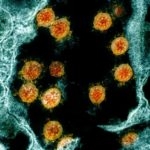
Policy Brief
Monoclonal Antibody Therapies for COVID-19: What Governors Need to Know
Published date
Ahead of anticipated authorization of vaccines for COVID-19, state and local leaders must also begin planning for the imminent availability and distribution of monoclonal antibodies (mAbs), which represent a potentially valuable type of treatment to prevent serious complications of COVID-19. An EUA may be granted by the Food and Drug Administration (FDA) as early as this week.
While mAb therapies are likely to be an important tool in reducing the toll of COVID-19, these will initially be in limited supply relative to patients who might benefit. As a result, state and local policymakers will have to make decisions about how the therapies can get to the populations that need them most. Clinical trials indicate mAbs are likely to work best when administered soon after infection occurs and must be “infused” in specialty clinics or similar medically-supervised settings, requiring further planning arrangements.
Governors and other state health officials should proactively engage health system leaders, public health experts, and local and community leaders to understand their state’s health system capacity for administering antibody treatments, develop guidance for efficiently targeting limited resources to populations who are most likely to benefit, and address potential barriers to access for populations at highest risk of serious outcomes from COVID-19.